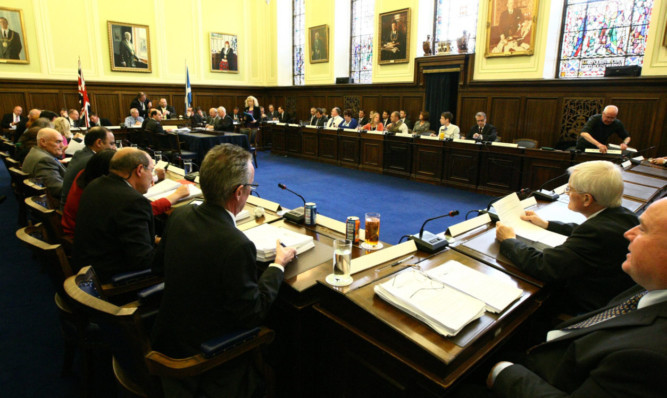Dundee councillors have decided not to support the harbour biomass proposal in a move that will send the controversial project to a public inquiry.
In a debate lasting almost four hours, members decided by 20 votes to six to reject the recommendation by director of city development Mike Galloway that the council a statutory consultee should not object to Forth Energy’s massive £325 million scheme.
Surprisingly, seven members of the SNP administration voted for the amendment of Labour’s Richard McCready, seconded by the Conservatives’ Derek Scott, that the authority should object.
SNP administration leader Ken Guild said before the count that there would be a free vote by his colleagues on the issue, which has proved one of the most contentious planning matters Dundee has seen in many years.
It had earlier become clear that some members of the ruling group were uneasy about endorsing the view that the council should throw its weight behind the renewable energy project, which will provide up to 500 jobs during construction and 70 operational posts thereafter.
They questioned Forth Energy’s chief executive Calum Wilson in great detail about the size of the biomass building it will be bigger than the former Tayside House its energy output and its impact on public health.
The number of SNP councillors who ended up voting for the opposition amendment more than those who voted with their leader for the director’s recommendation was unexpected.
The effect of the decision by the policy and resources committee is to trigger a public inquiry by the Scottish Government, and that forum will be able to consider all aspects of the project.
The biomass plant was first considered by the council 30 months ago and councillors then concluded that Scottish ministers should not grant it consent under the Electricity Act until its potential impact on air quality in the Stannergate area could be more fully assessed.
Special tests were carried out for Forth Energy and the results unveiled in April concluded that negligible nitrogen dioxide emissions would come from the plant’s 90-metre stack in comparison with the volume from passing traffic, which the council is trying to reduce through an air quality management plan.
Mr Galloway accepted the test results and said the biomass had significant factors in its favour.
These were that it would provide electricity and heat from sustainable chipped wood shipped in from North America to meet renewable energy targets, and would provide jobs.
Disadvantages were that its emissions might exacerbate air quality and have an adverse impact on public health and might physically impact on the city.
Deputations ranging from Friends of the Earth and West End Community Council outlined serious concerns about the plant’s effect on public health while Dundee and Angus Chamber of Commerce president Jim Pickett talked up the boost it would give to the beleaguered local economy.
Mr Guild backed Mr Galloway’s recommendation that the council should not object to the proposal providing air quality monitoring continues and Forth Energy supports a low-emission strategy for road traffic using the site.
He also called for the amount of useable heat produced by the plant to be maximised and raised from the proposed 30% level.
Mr McCready’s amendment was that the council object because its emissions will exacerbate air quality standards and the biomass by its scale and massing would form “a discordant feature on the waterfront.”
A spokesman for Forth Energy said: “We note the decision of the committee and will now consider our position.
